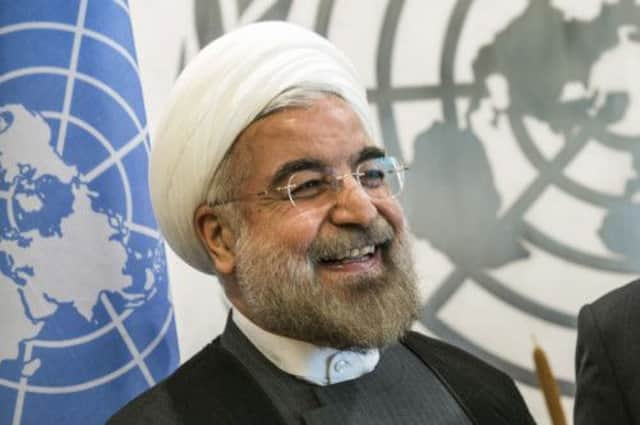Iran: Was shot cyber warrior assassination target?


Alborz, an Iranian website, says Mojtaba Ahmadi left his house on Monday morning and was found dead with a bullet in his heart a few hours later in a wooded area near the town of Karaj, north-west of Tehran.
It is thought Mr Ahmadi was commander of the force’s cyber warfare programme and speculation is rife his murder could have been an assassination, similar to those of five Iranian nuclear scientists since 2007, which Iran blamed primarily on Israel but also on the United States.
Advertisement
Hide AdAdvertisement
Hide AdThe White House has condemned such attacks in the past, but the official reaction from Israel was more cryptic.
Mr Ahmadi’s murky killing comes at a particularly sensitive time, coinciding with signs of a historic thaw in relations between Iran and the US, whose presidents had an unprecedented phone conversation last week.
“It wouldn’t be surprising if someone who doesn’t want to see diplomacy work sought to undermine it, but we really don’t know,” Trita Parsi, head of advocacy group the National Iranian American Council, said.
A statement by the Islamic Revolutionary Guard Corps (IRGC) yesterday said: “In the wake of a horrific incident involving one of the IRGC officials … the matter is being investigated and the main reason for the event and the motive of the attacker have not been specified.”
The communique was carried by Sepah news, which is operated by the Revolutionary Guards, under the headline, “Denial of news reports of the assassination of one of IRGC’s officials”.
Some Iranian sources have suggested Mr Ahmadi was just a local IRGC commander. But analysts said if he really was one of Iran’s leading cyber-warriors, his murder could represent a dangerous escalation in a covert war between Tehran and Tel Aviv.
The IRGC statement said: “The result of the investigation will be announced through official channels and any speculation will not be appropriate before the investigation is over.”
Tehran has been accused of mounting cyber attacks against western targets in recent years but was itself targeted in 2010 by the most sophisticated known attack to date – a joint Israeli-US operation that struck computer systems at nuclear installations.
Advertisement
Hide AdAdvertisement
Hide AdThe IRGC has been accused of lending its expertise to president Bashar al-Assad’s regime in Syria, helping it to hack western targets through a body called the Syrian Electronic Army.
In turn, Tehran has accused Israel and its western allies of carrying out a series of assassinations against Iranian nuclear scientists. The last such attack was in January 2012, when Mostafa Ahmadi Roshan, 32, a chemist who worked in the uranium enrichment plant near Natanz, was killed. Two men on a motorbike attached a magnetic bomb to his Peugeot 405 while he was stalled in a Tehran traffic jam.
It has been suggested two men on a motorbike were involved in Mr Ahmadi’s “assassination”.
Israeli PM Benjamin Netanyahu has branded moderate new Iranian president Hassan Rouhani, who has pledged to resolve the nuclear dispute with the West, a “wolf in sheep’s clothing”.
Scott Lucas, an Iran expert at Birmingham University, said: “We are in the realm of speculation over Ahmadi. Until that speculation is proven true, this should not deflect from the bigger story of Rouhani’s engagement with the West.”